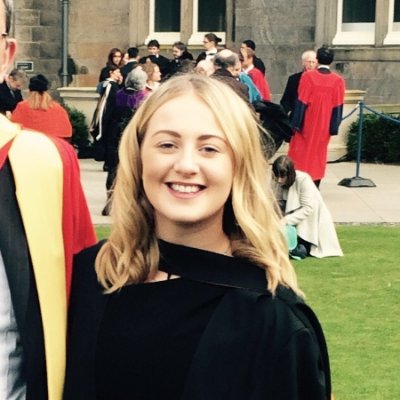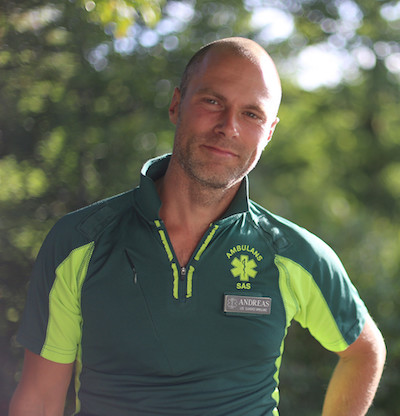Ghana
See the following -
'Open.Michigan' Translation Project: Case Study On Health Education For Uganda
Back in January, we launched our translation pilot for Open.Michigan, focusing on two video series for health education. We are thrilled to report that the translation activities are still going strong—57 volunteers to date, 53 videos that include 128 completed translations covering 11 languages, and expansion into our family medicine video series. We are amazed at the skill and dedication of our volunteer translators. Read More »
- Login to post comments
10 African Startups That Rocked 2014
2014 has been another amazing year for startups in Africa. More and more entrepreneurs turned their attention to building businesses that can solve the continent's problems and provide services it has long awaited...
- Login to post comments
30 Brilliant African Tech Startups
The secret is out. Wired likens the opportunities in Africa to those of the pre-dotcom boom in 1995. Says the magazine: “If you want to become extremely wealthy over the next five years, and you have a basic grasp of technology, here’s a no-brainer: move to Africa.” Read More »
- Login to post comments
5 Apps Working to Improve Women’s Safety Across the World
 Girls in Dharavi Diary Slum are learning how to code apps, changing the lives of people living in Mumbai’s biggest slum. The project aims to empower and educate girls from the Dharavi slum, giving them vital skills to thrive in a digital world. In a country where education for girls is considered secondary to maintaining the family home, this programme is revolutionary in changing the way India is looking at education for girls...
Girls in Dharavi Diary Slum are learning how to code apps, changing the lives of people living in Mumbai’s biggest slum. The project aims to empower and educate girls from the Dharavi slum, giving them vital skills to thrive in a digital world. In a country where education for girls is considered secondary to maintaining the family home, this programme is revolutionary in changing the way India is looking at education for girls...
- Login to post comments
Africa's Mineral Wealth Hardly Denting Poverty Levels, Says World Bank
Report finds discovery of oil and mineral resources doing little to improve prospects for poor people, whose lot may even worsen Read More »
- Login to post comments
Cloud, Social, Big Data And Mobile Technology Reshapes One African City
As one of Africa's fastest urbanizing cities, Accra, Ghana needs to recognize the challenges it faces as it continues to grow. Read More »
- Login to post comments
Computerworld Honors 2013: Critical Health Data Sent To Rural Ghana Via Mobile
This mobile health platform, the 21st Century Achievement Award winner for health, aims to improve the availability and quality of healthcare services in rural Ghana and demonstrate best practices. Read More »
- Login to post comments
Condom Airborne Meds: 6 Ways Drones Could Change Health Care
 Drones have been used to deliver sunscreen to a conference in Palm Springs, Calif., and pizza to a family in New Zealand, but they’re also in the air for far more urgent purposes — such as saving lives. In fact, in some cases, drones could carry defibrillators to heart attack victims faster than an ambulance, according to a paper published Tuesday in the Journal of the American Medical Association. Researchers simulated emergency situations and found they could get automatic external defibrillators to the scene an average of 16 minutes faster by drone than by ambulance...
Drones have been used to deliver sunscreen to a conference in Palm Springs, Calif., and pizza to a family in New Zealand, but they’re also in the air for far more urgent purposes — such as saving lives. In fact, in some cases, drones could carry defibrillators to heart attack victims faster than an ambulance, according to a paper published Tuesday in the Journal of the American Medical Association. Researchers simulated emergency situations and found they could get automatic external defibrillators to the scene an average of 16 minutes faster by drone than by ambulance...
- Login to post comments
Data.gov Moving To An Open Source Platform
The team that manages Data.gov is well on its way to making the government data repository open source using a new back-end called the Open Government Platform, officials said during a Web discussion Wednesday. Read More »
- Login to post comments
Developing Nations Improving Health Communication Through the Use of DHIS2 (Part 1)
 DHIS2 implementations are spreading steadily among national health services in developing countries as well as among international non-governmental organizations (NGOs) working to improving health in the developing world through the use of health information technology. As an open source solution, DHIS2 offers developing countries the advantage of adopting a cost-effective and flexible solution for aggregate statistical data collection, validation, analysis, management, and presentation as well as for data sharing between healthcare professionals and facilities. Organizations and individuals who work with humanitarian software solutions will need to know what DHIS2 is, how it works, and how it might be implemented by national health services and other health-related projects across the globe...
DHIS2 implementations are spreading steadily among national health services in developing countries as well as among international non-governmental organizations (NGOs) working to improving health in the developing world through the use of health information technology. As an open source solution, DHIS2 offers developing countries the advantage of adopting a cost-effective and flexible solution for aggregate statistical data collection, validation, analysis, management, and presentation as well as for data sharing between healthcare professionals and facilities. Organizations and individuals who work with humanitarian software solutions will need to know what DHIS2 is, how it works, and how it might be implemented by national health services and other health-related projects across the globe...
- Login to post comments
Digitizing Maps Of Malaria Hotspots To Save Lives
Mapping collaboration between Europe and Africa has led to the creation of a digitized malaria mapping database that for the first time brings together all available malaria data, helping tackle a disease that kills more than 660,000 people every year.
- Login to post comments
District Health Information System 2 (DHIS2)
 District Health Information Software 2 (DHIS2) is a free and open source health management data platform used by multiple organizations, including the European Union (EU), and governments worldwide. It is currently being deployed in 54 countries. DHIS2 is a development project by the Health Information Systems Program (HISP) and is used for aggregate statistical data collection, validation, analysis, management, and presentation...
District Health Information Software 2 (DHIS2) is a free and open source health management data platform used by multiple organizations, including the European Union (EU), and governments worldwide. It is currently being deployed in 54 countries. DHIS2 is a development project by the Health Information Systems Program (HISP) and is used for aggregate statistical data collection, validation, analysis, management, and presentation...
- Login to post comments
DIY Lab Technique to Revolutionise Training for Neuroscientists
 A team of international researchers have come up with an inexpensive way to self-manufacture lab equipment, which could revolutionise the way neuroscientists across the world are trained. In a study published in the open access journal PLOS Biology, Dr Tom Baden from Sussex Neuroscience and André Maia Chagas, from the University of Tübingen, have devised a new imaging and microscope system called “FlyPi”. The equipment needed for modern neuroscience experiments can cost tens or even hundreds of thousands of pounds, which often means only institutions in rich countries can undertake top-level research and scientific training...
A team of international researchers have come up with an inexpensive way to self-manufacture lab equipment, which could revolutionise the way neuroscientists across the world are trained. In a study published in the open access journal PLOS Biology, Dr Tom Baden from Sussex Neuroscience and André Maia Chagas, from the University of Tübingen, have devised a new imaging and microscope system called “FlyPi”. The equipment needed for modern neuroscience experiments can cost tens or even hundreds of thousands of pounds, which often means only institutions in rich countries can undertake top-level research and scientific training...
- Login to post comments
Ending Poverty: There's an Open Source App for That!
 Rural Africa presents changemakers with intractable challenges across sectors, but one American investor, Grameen Foundation, believes it all comes down to access to information. Grameen Foundation has invested millions to develop mobile-phone applications that leapfrog over a lack of electricity, education, and income. Building on their legacy of leading-edge ideas, Grameen Foundation has evolved from funding microfinance to designing disruptive solutions to the kind of poverty that's most challenging to reach, in remote rural areas, and to the poorest of the poor. Since more people have access to cell phones than toilets in Africa, Grameen Foundation brings increased agricultural productivity, access to prenatal and infant healthcare, and a portfolio of financial services, to the poor--right into the palm of their hands.
Rural Africa presents changemakers with intractable challenges across sectors, but one American investor, Grameen Foundation, believes it all comes down to access to information. Grameen Foundation has invested millions to develop mobile-phone applications that leapfrog over a lack of electricity, education, and income. Building on their legacy of leading-edge ideas, Grameen Foundation has evolved from funding microfinance to designing disruptive solutions to the kind of poverty that's most challenging to reach, in remote rural areas, and to the poorest of the poor. Since more people have access to cell phones than toilets in Africa, Grameen Foundation brings increased agricultural productivity, access to prenatal and infant healthcare, and a portfolio of financial services, to the poor--right into the palm of their hands.
Ghana’s ISPs Are Dying Out Because The Mobile Web Is Booming
Ghana boasts Africa’s highest penetration of mobile broadband, at 23% of the population in 2011, the latest year for which figures are available. That compares with just 7% in 2010. By contrast, fixed-broadband penetration stood at a negligible 0.3% in 2011, and that’s killing Ghana’s internet service providers (ISPs). Read More »
- Login to post comments